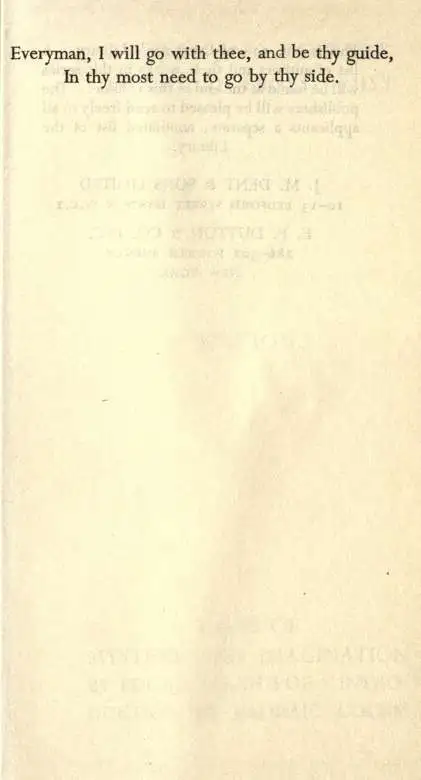Tales of mystery and imagination
This book made available by the Internet Archive.





All rights reserved
Made in Great Britain
at The Temple Press Letchworth
and decorated by Eric Rarilious
for
J. M. Dent <§_ Sons Ltd. Aldine House Bedford St. London First Published in this Edition 1908 Reprinted 1909, 1910, 1912, 1914, 1916 1917, 1921, 1925, 1928, 1938
INTRODUCTION
I
WHEN we say that Poe's imagination moves amongst excep tional things, we imply that he is familiar by temperament with the matter proper to the brief narrative or tale. The tale, on account of its brevity, is precluded from expounding facts and experiences that are socially important; therefore it deals with the exceptional—with something that arrests our curiosity from the start. It was a French critic, M. Brunetiere, who noticed the social insignificance of the incident upon which the tale is based; and he has pointed out that the material for the tale is to be sought in " certain peculiarities or variations of passion, which, though physiologi cally or pathologically interesting, are socially insignificant," and M. Brunetiere goes on to say that the incident is never taken out of the mainway of life, but out of its border— " things that happen on the margin," M. Brunetiere says suggestively.
That phrase " on the margin " admirably describes the whole of Poe's imaginative work, his verse as well as his prose. It is marginal, not central; it comes, not out of the mainway of life, but out of the border of existence. Poe gives us ex periences that are on the margin of sanity, or on the border of unconsciousness. He reports, with extraordinary literalness and lucidity, the last swoon of the nerves, as in the passage where he describes the sensations of one who has just been sentenced by the Inquisition.
" The sentence—the dread sentence of death—was the last of distinct accentuation which reached my ears. After that the sound of the inquisitorial voices seemed merged in one dreamy, indeterminate hum. It conveyed to my soul the idea of revolution —perhaps from its association in fancy with the burr of a mill wheel. This only for a brief period, for presently I heard no more. Yet, for a while I saw—but with how terrible an exaggeration!—I saw the lips of the black-robed judges. They appeared to me white—whiter than the
sheet upon which I trace these words—and thin even to grotesqueness; thin with the intensity of their expression oi firmness—of immovable resolution—of stern contempt of human torture. I saw that decrees of what to me was Fate were still issuing from those lips. I saw them writhe with a deadly locution. I saw them fashion the syllables of my name, and I shuddered because no sound succeeded. I saw, too, for a few moments of delirious horror, the soft and nearly imperceptible waving of the sable draperies which enwrapped the walls of the apartment. And then my vision fell upon the seven tall candles upon the table. At first they wore the aspect of charity, and seemed white slender angels who would save me; but then, all at once, there came a most deadly nausea over my spirit, and I felt every fibre in my frame thrill as if I had touched the wire of a galvanic battery, while the angel forms became meaningless spectres, with heads of flame, and I saw that from them there would be no help. And then there stole into my fancy, like a rich musical note, the thought of what sweet rest there must be in the grave."
Edgar Allan Poe was born in Boston, U.S.A., on January 19, 1809. Certain peculiarities in his work have been put down to racial tendencies, for his father, though American born, was of Irish descent. But we notice the profession of the parents as a fact more immediate than their racial deriva tion. Both parents were actors, and the stage seems to have been in keeping with certain tendencies in the father. He seems to have been a Bohemian, or rather a vagabond. It is said that he had made an imprudent marriage; it is fairly certain that he deserted his wife before the child Edgar was born.
1 comment